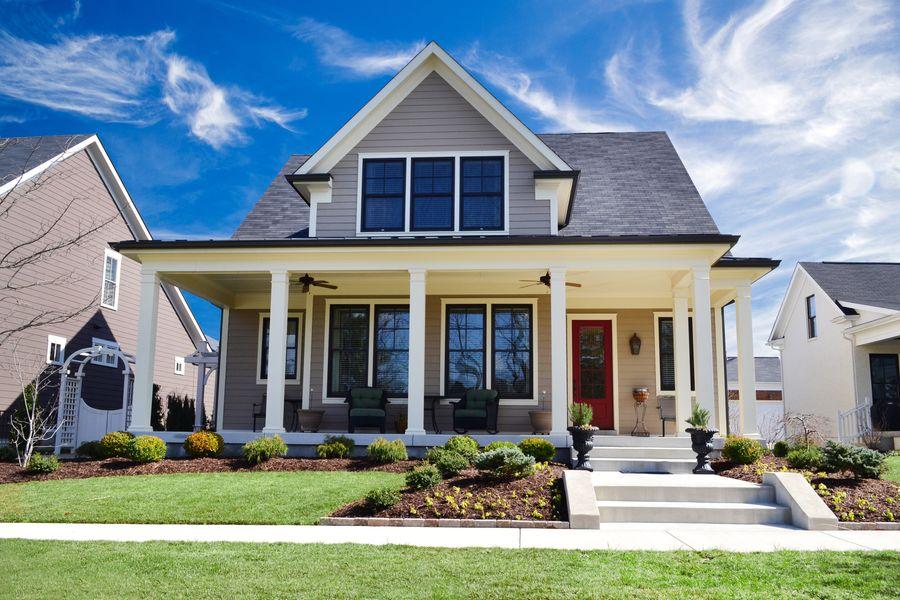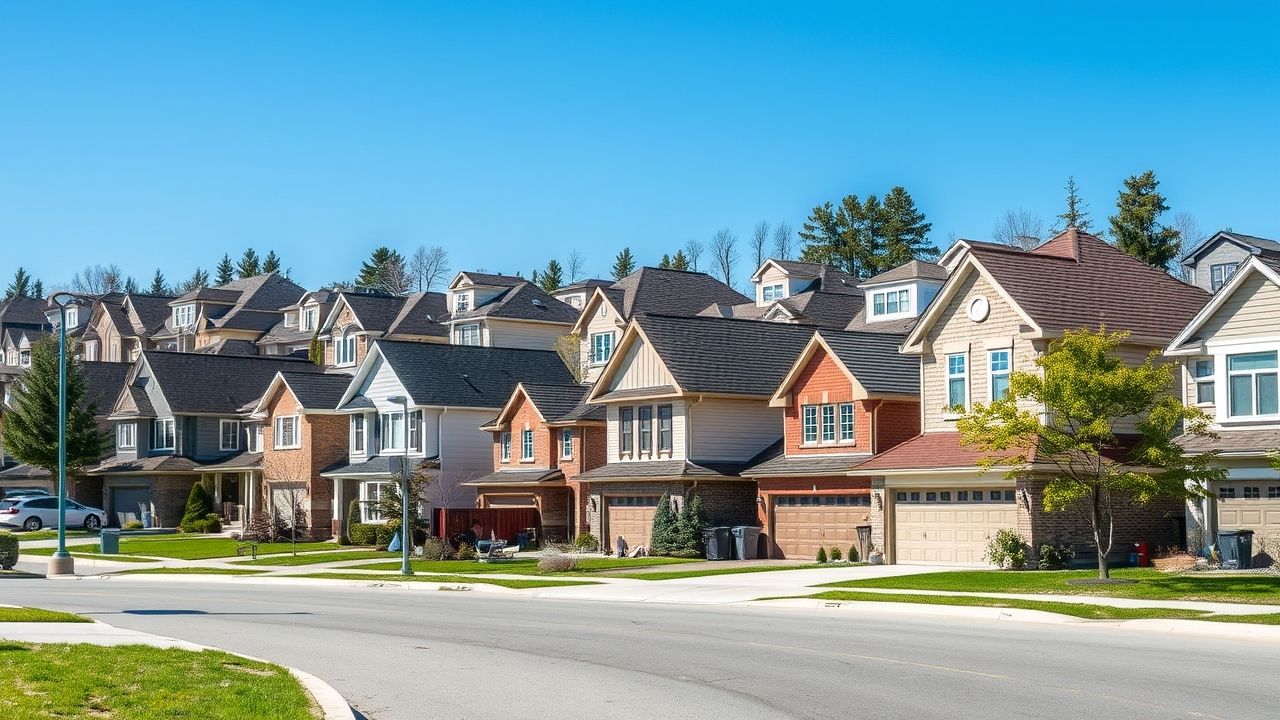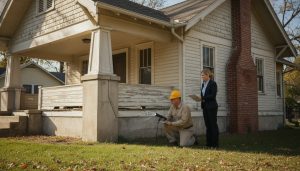Is trying to buy or sell a house in the GTA making your head spin?
You hear crazy stories. Prices go up. Prices go down. Bidding wars. Houses sitting forever. It’s a lot.
This guide cuts through the noise. It’s your simple, step-by-step plan for buying or selling a home in places like Georgetown, Milton, Guelph, Acton, Oakville, and Burlington. No fluff. Just what you need to know.
We’ll cover how the market works right now. How to get money for a house. How to find the right place or the right buyer. What lawyers do. Even tips for moving day.
Think of this as your roadmap. Let’s get started.
Understanding the Wild GTA West Real Estate Market (2024-2025)
First things first. What’s really happening out there? The news talks about Toronto, but what about your town?
The Greater Toronto Area (GTA) market is always changing. What happened last year might not matter now. And Toronto’s market isn’t always the same as Milton‘s or Guelph‘s.
What We’re Seeing Now (Mid-2024)
- Things are moving, but slower: Houses aren’t flying off the shelves like they did a couple of years ago. Buyers have a bit more time to think. Sellers need to be more patient.
- Prices are mixed: Some areas are seeing prices go up a little. Others are flat or down slightly. It really depends on the town and the type of house.
- Interest rates matter: Higher mortgage rates mean people can’t borrow as much money. This affects how much they can offer for a house.
Let’s look at specific towns:
- Georgetown & Acton: These Halton Hills towns offer a quieter feel. We see steady interest here. Family homes are popular. Prices here didn’t jump as wildly as some other spots, so they feel a bit more stable. Expect homes priced right to sell reasonably quickly, maybe taking a few weeks instead of a few days.
- Milton: Milton grew fast. Lots of newer homes. It’s still popular with families. The market here can be competitive, especially for homes under $1 million. Trends in early 2024 showed decent activity, but buyers are careful. They want value.
- Guelph: Guelph has its own strong market. It’s not just a Toronto suburb. It has the university and local jobs. The market here is often busy. First-time buyers find it tough sometimes. Bidding wars still happen for good homes in popular areas, but it’s less common than before. Inventory (number of homes for sale) is still tight compared to historical averages.
- Oakville & Burlington: These cities are closer to Toronto and Lake Ontario. Prices are generally higher here. Oakville especially has many luxury homes. The market here feels the impact of interest rates. Buyers are picky. Sellers need top-notch marketing and realistic prices. Burlington offers a mix, with some more affordable areas. Expect average days on market here to be slightly higher than towns further west, maybe 3-5 weeks in mid-2024.
Looking Ahead (Late 2024 – 2025)
Nobody has a perfect crystal ball. But experts think:
- Interest rates might slowly drop: If they do, more buyers might jump in.
- Prices likely won’t crash: Most experts expect prices to stay stable or maybe creep up slowly. Not huge jumps.
- More houses might come up for sale: If rates ease, some people waiting to sell might list their homes.
Expert Insight: “Right now, buyers in Guelph and Milton need to have their financing locked down tight before making an offer. Sellers are looking for certainty.” – [Name], Mortgage Specialist, Guelph Financial.
Key takeaway: The market is more balanced than before. This is good news. Buyers have some breathing room. Sellers can still get good prices if they are realistic.
Buying a Home in GTA West: Your Step-by-Step Plan
Ready to buy? It feels huge. Let’s break it down into easy steps.
Step 1: Figure Out What You Need (and Want)
Don’t just browse online listings yet. Think first.
- Where do you want to live? Georgetown? Milton? Guelph? Oakville? Burlington? Acton? Think about schools, work commute, parks, shops.
- What kind of home? Detached house? Townhouse? Condo? How many bedrooms? Bathrooms? Need a big yard? Garage?
- Must-haves vs. nice-to-haves: What can you NOT live without? What would be great, but you could skip?
Write this down. It helps focus your search.
Step 2: Know Your Budget (The Money Talk)
This is the most important step. How much house can you actually afford?
- Talk to a mortgage person: Before you even look at houses, talk to a mortgage broker or a bank. They will look at your income, your debts, and your down payment savings. They will tell you how much money you can likely borrow. This is called getting pre-approved.
- Pre-approval is key: It shows sellers you are serious. It tells you your real price limit. Don’t skip this!
- Don’t forget extra costs: Buying isn’t just the house price. You need money for:
- Down payment (at least 5% for most people, sometimes more)
- Land Transfer Tax (we’ll talk about rebates later)
- Lawyer fees
- Home inspection
- Moving costs
- Maybe CMHC insurance (if your down payment is small)
Add these up. They can be thousands of dollars.
Step 3: Find a Good Real Estate Agent
Yes, you can search online yourself. But a good local agent is worth it.
- They know the area: A Guelph agent knows Guelph neighbourhoods. A Burlington agent knows Burlington schools.
- They help with paperwork: Offers and contracts are confusing. They guide you.
- They negotiate for you: They help you get the best price and terms.
- They spot problems: They might see issues with a house you’d miss.
How to find one? Ask friends for referrals. Look for agents active in the town you like. Interview a few. Pick someone you trust and feel comfortable with.
Step 4: Start House Hunting
Now the fun part!
- Use your needs list and budget: Your agent will send you listings that fit.
- Go see houses: Pictures lie. Walk through homes. Get a feel for them.
- Take notes: After seeing a few houses, they blur together. Write down what you liked and didn’t like.
- Be open-minded but stick to your needs: Maybe the kitchen isn’t perfect, but the location is. Can you fix the kitchen later? But don’t compromise on your must-haves.
Step 5: Make an Offer
You found the one! What now?
- Decide on a price: Your agent will help you figure out a fair price based on recent sales of similar homes nearby (called ‘comparables’).
- Conditions: You usually make an offer ‘conditional’ on certain things. Common conditions are:
- Financing: You need final mortgage approval.
- Home Inspection: A professional checks the house for hidden problems (roof, furnace, foundation, etc.).
- Deposit: You’ll include a deposit cheque with your offer to show you’re serious.
- Negotiation: The seller might accept your offer, reject it, or make a counter-offer. Your agent helps you negotiate.
Step 6: After the Offer is Accepted (Closing the Deal)
Your offer is accepted! High five! But you’re not done yet.
- Meet your conditions: Get final mortgage approval. Get the home inspection done. If everything is okay, you ‘waive’ or remove the conditions.
- Hire a real estate lawyer: The lawyer handles the legal stuff. They check the property title (making sure the seller really owns it and there are no liens). They handle the money transfer. They register the deed in your name.
- Get home insurance: You need proof of insurance before the closing day.
- Final walk-through: Just before closing day, you walk through the house one last time to make sure everything is as agreed.
- Closing Day: You sign final papers with your lawyer. The money changes hands. You get the keys! Congratulations!
Selling Your Home in GTA West: Getting it Done Right
Selling seems simpler than buying, right? Maybe. But doing it right gets you the best price with less stress.
Step 1: Decide if It’s the Right Time to Sell
Why are you selling? Moving up? Moving out? Downsizing?
- Look at the market: Is it a good time to sell in your specific town (Georgetown, Milton, etc.)? What are similar homes selling for?
- Consider your finances: Will the money you get cover your mortgage, fees, and your next move?
- Timing: Selling in spring or fall is often busiest. Winter can be slower.
Step 2: Get Your House Ready
First impressions matter. A lot.
- Declutter: Get rid of stuff you don’t need. Pack personal items away. Buyers need to imagine themselves living there.
- Deep clean: Make it sparkle. Clean windows, floors, bathrooms, kitchen.
- Fix small things: Leaky faucet? Cracked tile? Broken doorknob? Fix them. Buyers notice.
- Paint: Neutral paint colours appeal to more people. A fresh coat makes a big difference.
- Curb appeal: Mow the lawn. Weed the garden. Paint the front door. Make the outside look welcoming.
- Staging (Maybe): Sometimes rearranging furniture or even renting some pieces can make rooms look bigger and better. Ask your agent if it’s worth it for your home.
Step 3: Price it Right
Pricing is tricky. Too high, nobody comes. Too low, you lose money.
- Get a home valuation: Your real estate agent will analyze recent sales of homes like yours in your neighbourhood. This is the best way to set a realistic price.
- Don’t just trust online guesses: Websites give estimates, but they don’t know your home’s condition or unique features.
- Consider market conditions: In a slow market, you might need to price more competitively. In a hot market, you might have more room.
Step 4: Choose a Real Estate Agent
Again, a good local agent is crucial for sellers.
- Marketing: They take professional photos/videos. They list your home online (MLS/Realtor.ca). They market it to other agents and buyers.
- Showings: They arrange for buyers to see your home.
- Negotiation: They handle offers and negotiate to get you the best deal.
- Paperwork: They manage the complex contracts.
Interview agents. Ask about their marketing plan for your specific house in your town (Acton, Oakville, etc.). Ask about their fees (commission).
Step 5: Marketing and Showings
Your house is listed! Now what?
- Keep it clean: You need to keep the house ready for showings, often on short notice.
- Leave during showings: Buyers feel awkward if the owner is home. Go for a walk or run errands.
- Listen to feedback: Your agent will tell you what buyers are saying. If everyone says the price is too high, listen.
Step 6: Dealing With Offers
You got an offer! Maybe even more than one.
- Review the details: Look at the price, closing date, conditions (like financing, inspection).
- Accept, Reject, or Counter: You can accept the offer as is. You can reject it. Or you can make a counter-offer (change the price or terms and send it back).
- Multiple offers: If you get several offers, your agent will help you compare them and decide how to respond (e.g., ask everyone for their ‘best and final’ offer).
Step 7: After the Offer is Accepted (Getting to Closing)
The buyer needs to meet their conditions (financing, inspection).
- Prepare for inspection: The buyer’s inspector will come. Make sure they have access.
- Hire a real estate lawyer: Your lawyer prepares the closing documents, makes sure you get paid, and transfers ownership.
- Start packing: Plan your move.
- Closing Day: You sign final papers. The buyer’s money comes through. The house is officially sold.

Money Talk: Financing Your GTA Home
Getting a mortgage is a big part of buying.
Mortgage Pre-Approval: Your First Step
We said it before, we’ll say it again. Get pre-approved.
- It tells you how much you can borrow.
- It locks in an interest rate for a period (usually 90-120 days).
- It makes your offer stronger.
Talk to a mortgage broker or your bank. They need documents like proof of income (pay stubs, tax returns), bank statements, and info about your debts.
Down Payment: How Much Do You Need?
- Minimum: Usually 5% of the purchase price for homes under $500,000. For homes $500,001 to $1 million, it’s 5% of the first $500k plus 10% of the amount over $500k. Over $1 million needs 20% down.
- Bigger is Better: A larger down payment (20% or more) means you avoid CMHC insurance (see below) and might get a better interest rate. Your monthly payments will be lower.
Saving for Your Down Payment
How can you save up that big chunk of money?
RRSP Withdrawal for Down Payment (Home Buyers’ Plan – HBP)
This is a popular federal program.
- What it is: Allows first-time buyers to withdraw money from their Registered Retirement Savings Plans (RRSPs) to use for a down payment.
- How much: You can withdraw up to $35,000 per person ($70,000 for a couple). Updated for 2024: The limit increased to $60,000 per person, effective April 16, 2024.
- Tax-free: You don’t pay income tax on the withdrawal if you pay it back.
- Repayment: You have 15 years to pay the money back into your RRSP, starting the second year after you withdraw.
- Conditions: The money must have been in your RRSP for at least 90 days. You must buy or build a qualifying home. You must intend to live in it as your main home.
- Link: Canada Revenue Agency – Home Buyers’ Plan (HBP)
FHSA Account Benefits (First Home Savings Account)
This is a newer federal program (started in 2023).
- What it is: A special savings account designed for first-time home buyers.
- How it works: Combines features of an RRSP and a TFSA.
- Contributions are tax-deductible (like an RRSP).
- Withdrawals to buy a first home (including investment income earned) are tax-free (like a TFSA).
- Limits: You can contribute up to $8,000 per year, with a lifetime maximum of $40,000.
- Who qualifies: Canadian residents, 18+, who haven’t owned a home in the current year or the last four calendar years.
- Using it: You can use funds from your FHSA and the HBP for the same home purchase.
- Link: Canada Revenue Agency – First Home Savings Account (FHSA)
CHMC Insurance Explained (Mortgage Default Insurance)
What is this insurance?
- Who needs it: If your down payment is less than 20% of the home price, your lender requires mortgage default insurance. Canada Mortgage and Housing Corporation (CMHC) is the main provider, but there are private ones too (Sagen, Canada Guaranty).
- What it does: It protects the lender, not you. If you can’t make your payments and default on the mortgage, the insurance pays the lender.
- The cost: You pay a premium. It’s usually added to your mortgage amount, so you pay it off over time with interest. The premium depends on how small your down payment is (higher percentage for smaller down payments).
- Why it exists: It allows lenders to offer mortgages to people with smaller down payments.
- Link: CMHC – Mortgage Loan Insurance
Saving Money: Rebates and Credits
Buying a home is expensive. These programs help soften the blow.
Land Transfer Tax Rebate Ontario
Ontario charges a Land Transfer Tax (LTT) when you buy property. It’s based on the purchase price. It can be a big cost.
- The Rebate: Eligible first-time home buyers can get a rebate of up to $4,000 off the provincial LTT.
- How it works: If the calculated LTT is $4,000 or less, you pay nothing. If it’s more, you get the $4,000 discount.
- Who qualifies: Must be 18+, a first-time buyer (never owned a home anywhere), and plan to live in the home.
- How to apply: Usually, your lawyer handles this during the closing process.
- Note: If you buy in Toronto, there’s also a Municipal Land Transfer Tax. Toronto has its own first-time buyer rebate (up to $4,475). Outside Toronto (like Georgetown, Milton, Guelph, etc.), you only pay the provincial LTT.
- Link: Ontario Ministry of Finance – Land Transfer Tax
Tax Credits for Home Buyers
These are different from rebates. They reduce your income tax.
- Home Buyers’ Tax Credit (HBTC): A federal non-refundable tax credit. If you qualify, you can claim $10,000 on your tax return for the year you bought the home (this amount was increased from $5,000 recently). This gives you a tax credit of $1,500 (15% of $10,000).
- Who qualifies: First-time buyers (generally, haven’t owned a home in the last 4 years). Also applies to buyers with disabilities.
- How to claim: Claim it when you file your income taxes for the year you purchased the home.
- Link: Canada Revenue Agency – Home Buyers’ Amount
How to Apply for Buyer Rebates
- Land Transfer Tax Rebate: Your real estate lawyer applies for this when they register the deed. Make sure they know you are a first-time buyer.
- Home Buyers’ Tax Credit: You claim this yourself on your income tax return (Line 31270).
- FHSA/HBP: You arrange withdrawals with your bank/financial institution before closing. You report HBP withdrawals and FHSA contributions/withdrawals on your tax return.
Understanding Regional Programs (Halton, Mississauga, etc.)
Sometimes, specific regions or cities have their own programs. These change often and funding can be limited.
Halton Region Buyer Grants
Halton Region (includes Oakville, Burlington, Milton, Halton Hills) sometimes offers down payment assistance programs. These programs often target low-to-moderate income households.
- What to look for: Programs might offer loans (sometimes forgivable after several years if you still own and live in the home) to help with the down payment.
- Challenges: Funding is often limited. There are usually strict income limits and purchase price caps. Waiting lists can be long.
- Where to check: Keep an eye on the Halton Region website or contact their housing services department for current programs. These programs are not always active.
- Link: Halton Region Housing Programs (Check for updates)
Mississauga Affordability Programs
Mississauga is in the Region of Peel. Peel Region sometimes has affordability programs, similar to Halton’s.
- Focus: Often aimed at helping renters become owners, or assisting with affordable housing options.
- Check: Look at the Region of Peel Housing Services website.
- Link: Region of Peel Housing Support (Check for updates)
Important Note: These regional programs change frequently. It’s best to check the official regional websites directly for the latest information and eligibility rules.
Federal vs Provincial Incentives: What’s the Difference?
It can be confusing. Some programs are from the federal government (all of Canada), some from the Ontario government.
Federal Programs (Canada-wide):
- Home Buyers’ Plan (HBP) – RRSP withdrawal
- First Home Savings Account (FHSA)
- Home Buyers’ Tax Credit (HBTC)
- CMHC Mortgage Insurance
- (Previously) First-Time Home Buyer Incentive (a shared equity program, but applications closed March 2024).
Provincial Programs (Ontario only):
- Land Transfer Tax Rebate for First-Time Home Buyers
- Non-Resident Speculation Tax (This applies to foreign buyers, not usually first-time Canadian buyers)
- Various energy efficiency rebates (sometimes available for homeowners)
Key takeaway: You can often use both federal and provincial programs together (like the HBP, FHSA, LTT rebate, and HBTC) if you qualify.

The Legal Side: Lawyers and Paperwork
You need a lawyer when buying or selling.
What Your Lawyer Does (Buyer):
- Reviews the Agreement of Purchase and Sale.
- Checks the property’s title (searches for liens, debts, ownership issues).
- Arranges title insurance (protects you against future title problems).
- Calculates Land Transfer Tax and any rebates.
- Handles the exchange of money with the seller’s lawyer.
- Registers the deed in your name.
- Registers the mortgage on title.
What Your Lawyer Does (Seller):
- Reviews the Agreement of Purchase and Sale.
- Prepares the closing documents (deed transfer).
- Answers questions from the buyer’s lawyer.
- Accepts payment from the buyer’s lawyer.
- Pays off your existing mortgage and any other liens.
- Gives the remaining money to you.
Finding a Lawyer:
- Ask your real estate agent for recommendations.
- Ask friends or family.
- Look for lawyers specializing in real estate in your area (Guelph, Oakville, etc.).
- Get quotes for their fees.
Link: Law Society of Ontario – Finding a Lawyer
Moving Day: Tips for a Smoother Transition
You bought or sold. Now the actual move.
- Book movers early: Especially if moving during busy summer months. Get quotes from a few companies.
- Or DIY: Rent a truck. Bribe friends with pizza and beer.
- Change your address: Canada Post, bank, driver’s license, health card, subscriptions.
- Set up utilities: Arrange for hydro, water, gas, internet to be turned on at the new place and off at the old place.
- Pack smart: Label boxes by room. Keep essentials easily accessible (toilet paper, snacks, tools, medications).
- Clean: Leave your old place clean. Plan to clean the new place before unpacking (or hire cleaners).
Frequently Asked Questions (FAQ)
Q: Can I use the First Home Savings Account (FHSA) and the Home Buyers’ Plan (RRSP) for the same house?
Yes. If you qualify for both, you can withdraw funds from both your FHSA and your RRSP under the HBP to buy your first home.
Q: How much does CMHC insurance cost?
The cost is a percentage of your mortgage amount, ranging from 0.6% to 4.0%. The smaller your down payment, the higher the percentage. Your lender will calculate the exact amount, and it’s usually added to your mortgage principal.
Q: Do I get the Ontario Land Transfer Tax rebate automatically?
No, but it’s easy. Your lawyer applies for it when they register the property transfer, as long as you tell them you are an eligible first-time home buyer.
Q: Are there special programs if I’m buying in Guelph or Milton specifically?
While Ontario-wide and federal programs apply, specific municipal grant programs like down payment assistance in Halton (Milton, Oakville, Burlington) or Peel (Mississauga) are less common, have strict criteria, and change often. Always check the regional municipality’s website directly for current housing initiatives.
Q: How long does the home buying process take in the GTA?
It varies. Finding a home can take weeks or months. Once your offer is accepted, it usually takes 30-90 days to close, depending on the agreed closing date. Selling timelines also vary based on market conditions and preparation.
Q: What happens if the home inspection finds problems?
If your offer was conditional on inspection, you have options. You might ask the seller to fix the problems, ask for a price reduction, or walk away from the deal if the issues are too big.
Q: Do I really need a 20% down payment?
No. You can buy with as little as 5% down (for homes under $1M that meet criteria). But you will need to pay for mortgage default insurance (like CMHC), which adds to your costs.
Buying or selling a home in Georgetown, Milton, Guelph, Acton, Oakville, or Burlington is a big step. It takes planning. It takes patience. But you can do it.
Remember the key steps. Get pre-approved for financing early. Find a good local agent you trust. Understand the costs beyond the price tag. Prepare your home well if you’re selling.
This guide gave you the map. Now it’s time to start your journey. Ask questions. Do your research for your specific town. Take it one step at a time.
You’ve got this. Good luck finding or selling your home!





















